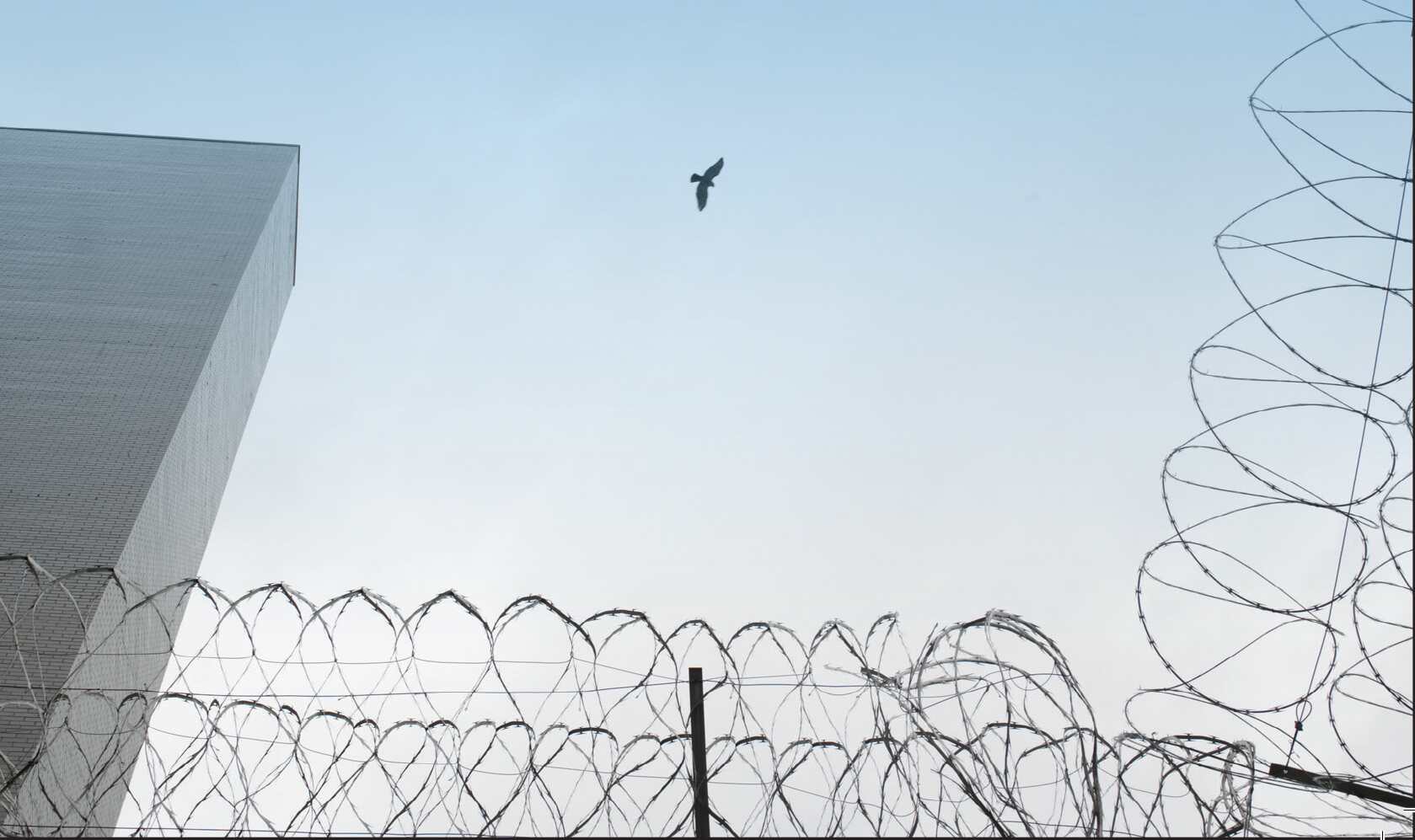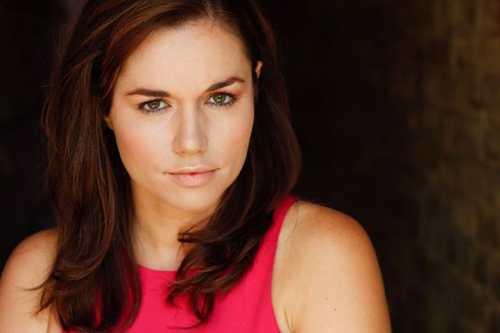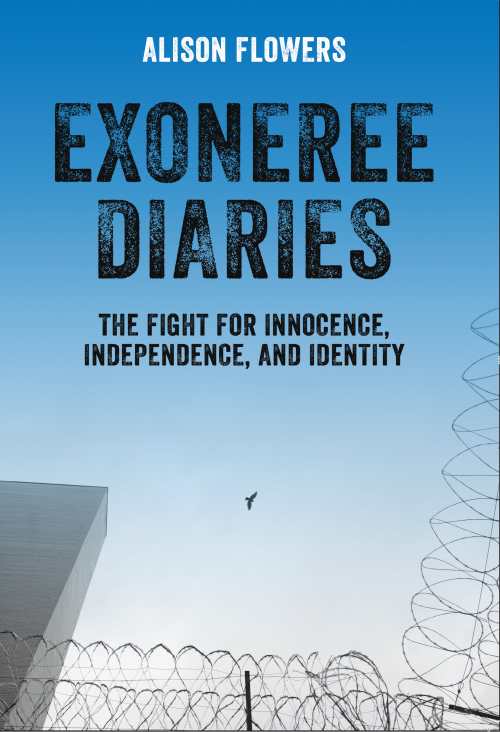Author Interview: For Falsely Imprisoned, Freedom is Only the Beginning of the Story

There is a misconception that to apologize is to show weakness. Yet, the true test of a just society is not only how it treats those on the margins, but also how it atones for its mistakes. On both these counts, the United States has, more often than not, failed the test of an enlightened civilization. But, as Martin Luther King Jr. said, “The arc of the moral universe is long, but it bends towards justice.” As proof of that, sift through the rhetoric of this nasty 2016 political season, and you’ll see a willingness to move forward on fixing our nation’s corrupt, morally bankrupt criminal justice system.
It’s an issue I’ve been following for many years and I’m thrilled that real reform might be possible at last. Over the past year or so, I’ve talked to authors including Baz Dreisinger, who wrote Other Press’s Incarceration Nations: A Journey to Justice in Prisons Around the World (author interview, book review) and Maya Schenwar, who wrote Berrett-Koehler’s Locked Down, Locked Out: Why Prison Doesn’t Work and How We Can Do Better (author interview) and reviewed books such as The United States of Incarceration by Tim Anderson. These and other authors, largely from indie publishers, are doing great work in shining light on the injustices perpetuated against those caught up in a barbaric prison system.
When I read and reviewed Exoneree Diaries: The Fight for Innocence, Independence, and Identity (Haymarket Books), by Alison Flowers, I was struck by an aspect of the criminal justice system I hadn’t thought much about: the lives of those who spent decades in cages for crimes they did not commit … and then are suddenly set free. Whether it’s DNA evidence, police or prosecutor misconduct, or inaccurate eyewitness testimony, exonerees are thrust back into a real world they may not be prepared to handle.
Yes, these exonerees would like some kind of system in place where they can be compensated for the decades stolen from them and help in re-establishing themselves into their communities, but they would also like something a little more fundamental and human: an apology, an admission that the system did not work and that steps are being taken so it doesn’t happen again. So far, crickets and tumbleweeds follow that request.
I recently ran into Flowers at Book Expo America in Chicago and talked to her about the book, why she wrote it, and what exonerees want.
How did you pick the topic in the first place? Has criminal justice reform always been an issue with you?

Alison Flowers: 'They want an apology. They want the state to say, 'We got it wrong.'
I started as a TV reporter and became very interested in criminal justice in Georgia where I was working. I was the reporter in town that covered all the trials. Through that experience I got interested in wrongful convictions and exonerations.
When I left that job I took a position at the Medill Innocence Project at Northwestern University, which was a founding member of the Innocence Network as we know it today with Barry Sheck and everyone else. I spent a couple of years investigating potential wrongful conviction cases and it actually occurred to me while I was blow-drying my hair one day—very romantic, but it occurred to me—we’re doing all this work on the front end to help exonerate these people, but what happens to them when they leave prison? And I realized that was a question that really wasn’t being asked that much. It’s a huge gap in the criminal justice system.
Because nothing is set up for them.
Exactly. You know, it’s wonderful that we’ve had decades and decades of overturning cases and freeing the innocent but now there’s this whole lack of infrastructure for how to deal with these people who seriously need aftercare. So I made it a point to meet some exonerees. I started interviewing them and then meeting with them regularly for about three years. And that’s how the book came to be.
Right now, they depend on lawsuits.
Right. And very few exonerees actually have the type of case that would be suitable for a lawsuit. In order to file a civil lawsuit you need to show that the police beat you, or there was prosecutorial misconduct, which is very hard to prove, there’s a very high standard of proof. So you know, not every case is suited for that and so not everyone can sue the state or the city for money.
And so, to create a system to deal with that would be to admit that you convicted the wrong people.
And it’s funny that you mention that, because every exoneree I’ve ever talked to is truly less interested in being compensated or in the money. They want an apology. They want the state to say, “We got it wrong.” And that’s something they’ll never get, because the state isn’t willing to admit those mistakes. The most that we’ve seen is from certain counties, or from certain states attorneys offices, a handful across the country, developing conviction integrity units. And that’s about as far as we’ve gotten. But an apology, it’s out of the question.
I worked for the website for a local Detroit TV station a few years ago, and crime coverage only focused on the police version of “catching the bad guys.”
That is the problem with deadline reporting. The advantage of a book is you’re not beholden to the police narrative of the day in order to meet your deadline. If you had time to really step back and explore the issues you would get a really different story. Which is actually what we saw here in Chicago with Laquan McDonald. It was covered the day it happened, when he was shot by the police. But the narrative that the Fraternal Order of Police gave to TV reporters, which they ate up like candy, was that he had been lunging at them and that this was a justified shooting. End of story. It took several months to counter that police narrative.
That’s very much about what these stories are about as well. It’s an opportunity for the exonerees to tell their own stories. Lots of them have been subjects of media interest over the years. This was an opportunity to really tell it from their point of view, which was why it was important not to put myself in the book.
I like some of the mundane details on how they went about re-establishing relationships with their kids, getting their GED, getting groceries—just little things.
It’s absolutely mundane. One of my favorite parts of the book is a portion of a chapter where Jacques is doing his laundry for the first time, and it’s an incredible moment for him where he feels really liberated, that he’s not having to wash his clothes in the sink, or wash his clothes with other people and potentially lose them in the prison. But he’s putting money into the machine and doing his own load of laundry and that’s something so basic that a lot of us don’t even think about. For him it was a really liberating moment.
Who do you think of as the audience for your book?
Well I think that I’m benefiting from this massive interest in criminal justice and mass incarceration and of course “Making a Murderer,” which happened in December after my manuscript was already turned in. I think there’s just this fascination with these issues, with looking at the flaws in the criminal justice system more than there has ever been before.

Howard Lovy is executive editor at Foreword Reviews. You can follow him on Twitter @Howard_Lovy
Howard Lovy

